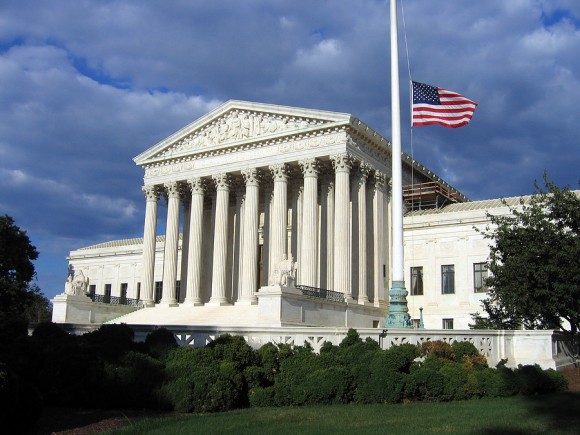The U.S. Supreme Court has allowed a challenge to an Internal Revenue Services (IRS) requirement for firms to report micro-captive insurance arrangements to proceed.
The IRS authority to require the captive reporting is being challenged as invalid by a Tennessee captive advisory firm, CIC Services.
At issue in this case was whether firms can challenge the reporting requirement without having to pay the $50,000 tax penalty or waiting for the IRS to start enforcement proceedings. The Supreme Court answered yes, remanding and reversing a Sixth Circuit court ruling affirming a district court opinion that had favored the government.
The IRS imposes a reporting requirement on taxpayers and advisors like CIC to monitor micro-captives, which the IRS has claimed for years are often tax-avoidance schemes masquerading as insurance arrangements. The $50,000 penalty is imposed for failure to comply with the reporting requirement.
CIC complained that the reporting rule was illegal under the Administrative Procedure Act. But the issue was complicated by the Anti-Injunction Act, which typically requires those contesting a tax’s validity to pay the tax before filing a legal challenge.
The IRS argued that firms can decline to submit the report, pay the penalty and then sue for a refund.
However, the Supreme Court, in a unanimous ruling written by Justice Elena Kagan, found that the suit to enjoin the IRS captive reporting requirement is not barred by the Anti-Injunction Act even though a violation may result in a tax penalty. The high court found that CIC’s suit seeks to invalidate the reporting requirement itself, not the tax.
The government argued that there is no real difference between a suit to invalidate the reporting rule and one to preclude the tax penalty. But the Supreme Court rejected that argument that CICs complaint is a tax action in disguise. Among its reasons: the presence of criminal penalties forces CIC to bring this type of an action and the government’s proposed alternative procedure—having a party disobey the rule and pay the tax penalty before bringing a suit for a refund—would risk criminal punishment.
The court also said that allowing CIC’s suit to proceed “will not open the floodgates to pre-enforcement tax litigation” because the Anti-Injunction Act will always bar pre-enforcement review when taxpayers challenge ordinary taxes and the sole target for a suit is the tax.
CIC Services cheered the ruling.
“This case is hugely significant given that the IRS has made issuing illegal regulations and enforcing them against taxpayers part of its standard operating procedure,” said Sean King, general counsel for CIC Services. “An alarming percentage of substantive obligations that the IRS imposes upon taxpayers each year by fiat don’t comply with the procedural requirements of the Administrative Procedures Act, and so are illegal, and yet are still shamelessly enforced by the Service.”
The Supreme Court has now remanded the case back to the district court for a determination on whether the reporting rule should be formally enjoined.
“When we go back to district court this time, the IRS will not be able to hide behind the Anti-Injunction Act,” said King. “This time it will have to defend itself as any other administrative agency would. It will have to account to the court for its abuses, and the court will be empowered to end it.”
The case is CIC SERVICES, LLC v. INTERNAL REVENUE SERVICE ET AL.
Was this article valuable?
Here are more articles you may enjoy.



 Insurify Starts App With ChatGPT to Allow Consumers to Shop for Insurance
Insurify Starts App With ChatGPT to Allow Consumers to Shop for Insurance  Zurich Insurance’s Beazley Bid Sets the Stage for More Insurance Deals
Zurich Insurance’s Beazley Bid Sets the Stage for More Insurance Deals  Chubb CEO Greenberg on Personal Insurance Affordability and Data Centers
Chubb CEO Greenberg on Personal Insurance Affordability and Data Centers  Pipeline Explodes at Delfin LNG Planned Project in Louisiana
Pipeline Explodes at Delfin LNG Planned Project in Louisiana 

